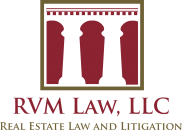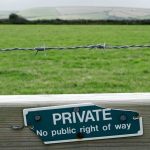Real Estate Law
Colorado and the Denver area is very dynamic when it comes to real estate primarily because of Denver’s location as the economic and regional hub for the Rocky Mountain west region of the United States.
Handling a real estate related legal problem or dispute can be daunting considering the complicated mixture of archaic English common law, tort and contract law that encompass many real estate problems. Add in recent changes concerning property rights and the constantly changing nature of the Colorado real estate market, and competent, affordable real estate representation is a necessity.
Whether you are a tenant or landlord seeking legal advice concerning tenancy law, a residential homeowner attempting to resolve a dispute with a mortgage lender, or a business owner or corporation attempting to resolve a real estate related matter, RVM Law, LLC is equipped with the expertise to help you in your REAL ESTATE matter.
Call Now: (303) 861-4719
Facing a wrongful foreclosure?
RVM Law, LLC highly recommends that you contact legal counsel early if you are facing a prospective foreclosure to ensure that you have the necessary documentation to protect your rights. Filing a lawsuit early may be the best way to prevent the loss of your home.
Colorado ranks as one of the most difficult states in the United States to defend against a wrongful foreclosure regardless of the evidence you possess concerning the lender’s wrongful conduct.
Colorado has a unique foreclosure process involving little to no Court oversight and is reliant primarily on appointed Public Trustees to administer. The Public Trustee process has been criticized due to the often close (and allegedly mutually beneficial) relationship between the public trustees, foreclosure attorneys, and financial institutions:
Colorado Public Trust Spending Raises Red Flags
10 Public Trustees Resign In Colorado
The typical public trustee foreclosure process involves a single hearing before a District Court judge which is governed by Colo. Rule of Civil Procedure 120. The mortgage lender is “required” by the rule to present evidence of borrower default before the Court will issue an order authorizing the foreclosure sale to proceed. However, foreclosure attorneys rarely present any evidence of default, let alone evidence that is considered competent under the Colorado rules of evidence. Furthermore, the Court’s order authorizing the sale is not subject to appeal (except in extraordinary circumstances left to the discretion of the Colorado Supreme Court). The unfortunate result is that most public trustee foreclosures are authorized without any actual review of the evidence substantiating an alleged default on their mortgage obligation. Bottom line, many people have lost their homes in Colorado even if they were fully compliant with their mortgage obligations.
While an attorney may be able to help represent a borrower during the rule 120 hearing and process, more often than not a separate lawsuit is necessary to ensure that the foreclosure is stopped before the home is sold at a public trustee auction. Once the home is sold at a public trustee auction, it becomes exceedingly difficult to recover title to the property through litigation.
Another overriding factor in defending against a wrongful foreclosure is to hire counsel that possesses an in-depth understanding of the Colorado Credit Agreement Statute of Frauds (“CASF”).
In response to the savings and loan crisis of the late 1980’s, the Colorado legislature passed the Credit Agreement Statute of Frauds (C.R.S. 38-10-124) which in spite of its purported fraud prevention justification, has been used routinely by mortgage lenders to hide lender fraud and prevent mortgage servicing fraud cases from succeeding. In short, the CASF requires that all legal and equitable causes of action involving a loan in excess of $25,000.00 must be premised on an executed writing, signed by a representative of the financial institution. Mortgage lenders are aware of this statute in Colorado and rarely provide signed documentation confirming the oral promises of their mortgage servicing agents. The typical situation involves a promise from a lender to modify, forebear, or enter into some type of foreclosure relief alternative for a borrower, with a further promise to send written confirmation of the agreement. Either the mortgage lender never sends the written confirmation, or sends a writing for the borrower to sign, which must then also be signed by the mortgage lender. The mortgage lender then fails to return the signed document and proceeds to foreclose on the property in spite of the borrower’s full compliance with the mortgage agreement.
Many courts in Colorado, including the United States District Court for the District of Colorado have used the CASF as a way to eliminate mortgage fraud related cases at the pleading stage before a borrower can obtain any discovery from the lender. For this reason alone it is extremely important to hire counsel early in the foreclosure process to ensure full documentation of the lender practices and to prepare a lawsuit which will survive dismissal at the pleading stage, and prepare the case for trial at the earliest possible stage.
In sum, if you are facing foreclosure, you are swimming in dangerous waters and competent legal counsel may be necessary as early as possible. Do not expect or trust the attorneys representing the mortgage lender to help you in the process either:
Contracts for sale and purchase of residential and commercial Real Property.
Title disputes, Quiet title actions, Easements, Right-of-ways, and Boundary issues.
Landlord/tenant disputes, Evictions, Commercial and Residential Lease Agreements.
Construction-defect Actions Concerning Developers, Contractors, Homeowners.
HOA and Common Interest Community Related Disputes.
Business and Real Estate Related Transactions and Disputes.
Debtor and Creditor Actions, Post-Judgment Issues and Disputes.
Real Estate Sales Contract Non-disclosure and Fraud.
Disputes Concerning Real Estate Broker Listing Agreements; Conflict of Interest.
Tax Lien Proceedings and Resolutions.
Zoning Appeals, Applications, and Disputes.









